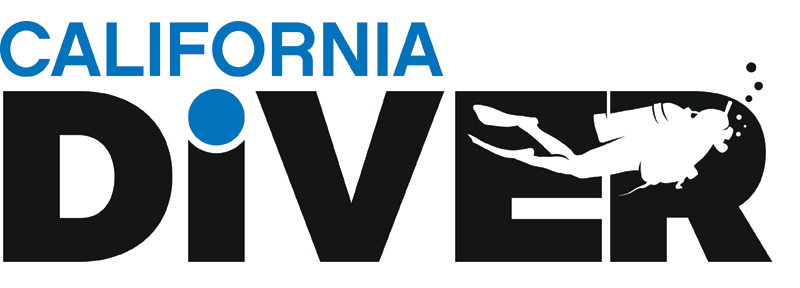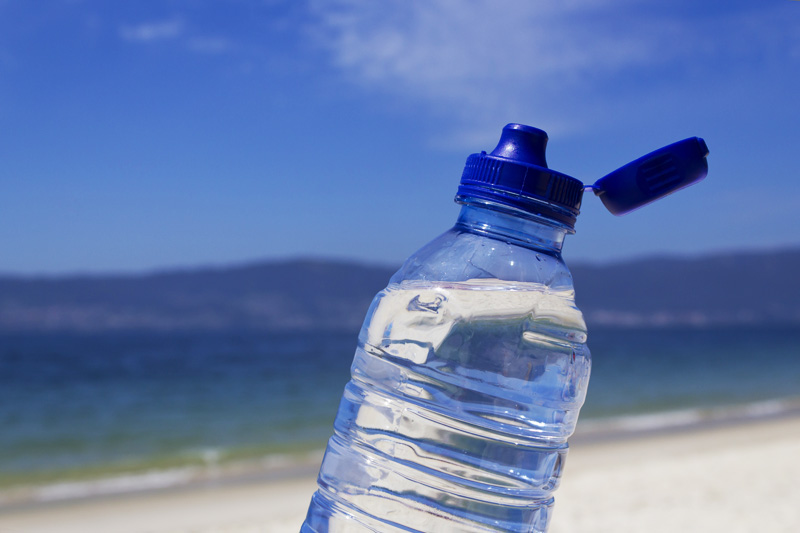Good hydration is important to a successful exercise program and especially important to SCUBA divers to reduce the risks associated with diving. Some physicians will tell you that most people are dehydrated most of the time. This general introduction reviews how much of the human body is made up of water, what water provides for the body, how fluid loss occurs, and general recommendations for daily fluid intake.
How Much Water is in the Human Body?
In an adult weighing approximately 155 pounds, the amount of water in the body is forty-two liters, nearly eleven gallons, or approximately 60%. The amount of water varies depending on percentage of body fat, male or female, and age. Approximately 40% (seven gallons) of the total body weight of the average person is fluid inside the cells and the remaining 20% (four gallons) is outside the cells. The estimated blood of the average adult body (1.3 gallons) is made up of fluid both inside and outside the cells. A small portion of the fluid in the body consists of specialized fluids—such as synovial fluid, which lubricates your joints. These fluids total approximately one-to-two liters.
What Does Water Provide the Human Body?
Water is necessary to maintain homeostasis—the maintenance of nearly constant conditions of every physiological process of the body. Daily water loss occurs by evaporation through the skin, through the lungs when breathing, from sweating, and by excretion.
An estimate of daily fluid loss when hydrated normally ranges from 2,300 ml (a little more than one-half gallon) with relative inactivity, to 6,000 ml (one-and-a-half gallons) when engaged in prolonged heavy exercise. However, a dehydrated individual may only lose 500 ml (.13 gallons) a day, while a person ingesting large quantities of water can process as much as twenty liters (five gallons) a day through the body.
SCUBA divers lose additional fluids through increased respiratory water loss from breathing compressed air/gas and immersion diuresis. Compressed air/gas is dry when you inhale it and saturated when you exhale it. Immersion diuresis is an increased production of urine produced by the pressure of being at depth underwater and at lower temperatures. Even when drinking adequately between dives, your body can only absorb from between one and one-and-a-half gallons per hour, and fluid loss from immersion diuresis may equal the amount of fluid intake. However, a good goal for fluid intake is one liter per hour during activities. You should increase your fluid intake if your urine becomes darker, or the volume decreases.
How Much Water Should You Drink?
Recommended water intake per day for men between the ages of nineteen and thirty years is 3.7 liters (approximately thirteen eight-ounce glasses), and for women, about 2.7 liters (approximately nine eight-ounce glasses). Drinking water and other fluids makes up about 81% of this fluid intake. Water within the food we eat makes up the rest.
Additional fluid intake is required to replace fluid loss from the diuretic affects of caffeinated beverages, herbal supplements, prescription medications and alcohol. Hot and dry climates, physical activity, and SCUBA diving also increase your hydration requirements. In addition to water, the American College of Sports Medicine also suggests supplementing with a sports drink—but only after an hour or more of exercise.
Story by Gretchen Ashton, CFT, SFT, SFN, NBFE
Visit Gretchen’s SCUBAFIT website here for more great information on how to be a fit diver!

